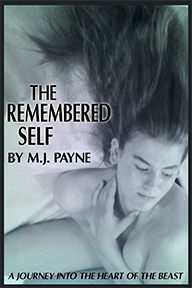By Julia Bianco
Phi Beta Kappa member M.J. Payne recently published a book titled The Remembered Self: A Journey Into the Heart of the Beast (Dog Ear Publishing, 2014), looking into the world of sex trafficking of children. Based on Payne’s life, the story looks at child abuse and the process of repression and then recovery.
Payne graduated from the University of Kentucky Honors program. She is a published research writer who currently lives in Dallas with her husband and their Dobermans.
Payne decided to write the book in order to show the recovery process that many victims of abuse go through.
“You can read statistics and look at situations of abuse, and you can keep your distance,” said Payne. “But people are uncomfortable when it comes to specific times of people saying exactly what happened to them.”
Payne’s book doesn’t shy away from these details. It begins during the child’s early years, and details the abuse. It then shows the child growing up and moving away from that life, while repressing much of what happened to her. Eventually, she starts to remember the events and attends therapy to begin the healing process.
Payne went through a similar process, repressing many of the memories of what happened to her. She began to remember her own story in college, and eventually went to see a therapist in order to find out what was happening to her. She found that, as her memories started to come back, she had some trouble fully feeling the emotional impact of them.
“It’s like bubble wrap,” she said. “The memories are in one part of my brain, and then the affect that would go with the memories are in another part. It’s a real agony of the therapy and the healing to try to associate those two things.”
Payne decided to write “The Remembered Self” as a way to help her work through those memories, and also to inspire other survivors to tell their stories and get the help they need. She used journal entries that she wrote during her therapy sessions as the basis for the story.
“I will not be muzzled about my life and about what happened to me,” she said. “That’s why I have come out and said these things.”
“My therapist said to me, if you want to do something and you’re scared, do it scared, but do it,” she added. “That has been my mantra through this experience.”
Payne hopes that telling her story will make talking about abuse and recovery more socially acceptable, something that she believes is necessary in order to help stop the cycle of abuse. Payne says that many children who are abused are put in the foster care system, where they are likely to be abused again, resulting in a number of other problems. She believes that making it easier to talk about abuse could allow these children to get the help they need.
“We have to bring it out in the open,” she said. “It’s a huge economic drain on the system to have children in the foster care system who were further abused, who do not receive the education they should receive, who have problems with substance abuse, with abusing their own children. It’s going on in a generational manner when it could be stopped if the muzzle was taken off and the bruising could be shown.”
“It’s too expensive to everyone not to have it brought out.”
Julia Bianco is a junior at Case Western Reserve University. She is a double major in cognitive science and political science, with a minor in English. Case Western is home to the Alpha of Ohio Chapter of Phi Beta Kappa.




